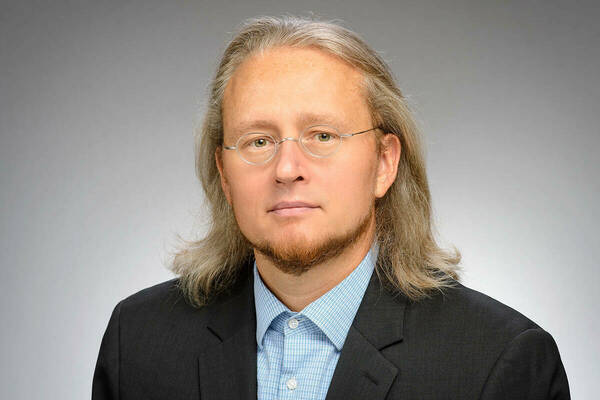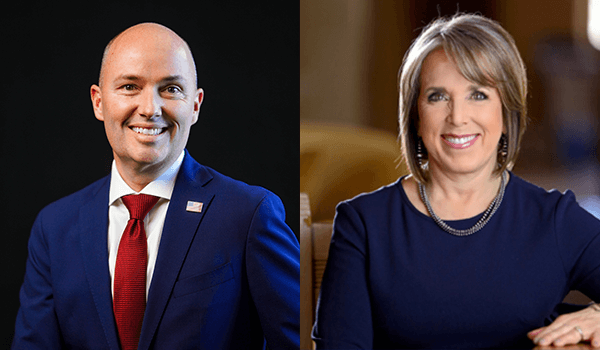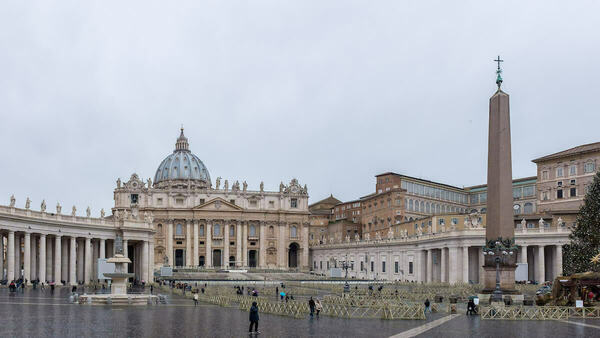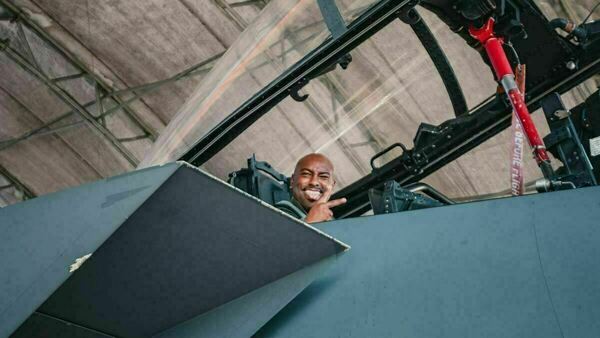In new research, Roy Scranton explores climate change and the limits of human progress
According to Roy Scranton, director of the University of Notre Dame’s Environmental Humanities Initiative, the biggest problem we face with climate change isn’t excessive carbon emissions or energy usage. And it isn’t the fundamental imbalance created by human activities that threatens ecosystems and has pushed the planet into instability.
The deeper problem, he argues, lies in the complexity of civilization itself — a global industrial society that has grown both unsustainably expensive and dangerously vulnerable to the environmental stresses that accompany climate change.
Because of this, he says, humanity is at an impasse.
That impasse is the foundation of Scranton’s latest research into what he sees as an intractable predicament where every fix faces potentially insurmountable challenges, from inertia and opposition to resource limits and competing priorities.

In his most recent book, “Impasse: Climate Change and the Limits of Progress,” Scranton, an associate professor of English, defines the impasse he sees as “not only political and institutional, but cognitive, existential and narrative” and asserts that the only path forward is through embracing what he terms ethical pessimism.
“A lot of people confuse pessimism with nihilism, apathy and despair,” Scranton said. “But pessimism is actually about recognizing our limits, letting go of unrealistic goals, finding solidarity in the fact of human suffering and doing what you can now, not in some utopian future.
“Modern pessimism emerged as a skeptical critique of early Enlightenment hubris, but it has roots in ancient wisdom from Sophocles to the Bhagavad Gita. Both the history of philosophy and modern insights from psychology show that pessimism is not only an effective way to deal with big problems, but a healthy approach to the unpredictability of circumstance, especially in fraught and difficult times.”
In “Impasse,” Scranton examines the “myth of progress,” how cultures have navigated societal collapse, failures in climate change communication, political extremism and “the end of the world as we know it,” ultimately concluding that the situation does not seem to be comprehensible within progressive modernity.
“These conclusions lead to a paradoxical and perilous ethical precipice,” he writes in the book. “The only way to cross the gap between progressive carbon-capitalist modernity and whatever comes next is to make a leap of faith, committing ourselves to an unknowable future.”
The second half of the book explores the origins of optimism and pessimism as both dimensions of personality and cognitive strategies, citing evidence from philosophy to neuroscience, as Scranton makes his case for ethical pessimism.
Our bias toward optimism, he cautions, may be “a characteristic of great evolutionary advantage of the long term, but under conditions of global ecological catastrophe has proven highly maladaptive.”
Pessimism, he concludes, is “an accurate, appropriate, and above all ethical response to the current situation — perhaps the only ethical response available.”
“Pessimism is fundamentally about recognizing and living within natural human limits,” Scranton writes. “It’s about recognizing that suffering is inevitable but not unbearable. It’s about learning to die and learning to live with death. And finally, it’s about committing to a radical and paradoxical hope: the hope that life might be worth living after the end of the world.”
Contact: Carrie Gates, associate director of media relations, 574-993-9220, c.gates@nd.edu
Latest ND NewsWire
- Notre Dame Democracy Initiative hosts bipartisan conversation with Western state governorsTwo Western state governors known to work across the aisle on policy issues such as water, housing and energy will visit the University of Notre Dame for a fireside chat about how Western state pragmatism can serve as a model for the country to overcome polarization.
- Notre Dame MBA launches deferred admission programThe Notre Dame MBA Deferred Admission Program allows candidates with little or no work experience, including college seniors, to secure admission before reaching the recommended three years of work experience to enroll.
- ‘Prebunking’ false election claims may boost trust in electionsIn recent years, democracies worldwide have seen a growing erosion of trust in election outcomes and institutions, driven in part by fears of widespread fraud. New Notre Dame research finds that “prebunking” — providing accurate information before false claims spread — boosts trust in elections more effectively than traditional fact-checking.
- ND experts on the canonization of Carlo AcutisAs the Church awaits the ceremony in St. Peter’s Square, where Pope Leo XIV will formally declare Acutis a saint, University of Notre Dame experts Kathleen Sprows Cummings, Brett Robinson and Timothy O’Malley reflect on his life and his path to sainthood.
- MBA student and alumnus to take part in Fighting Irish flyoverNotre Dame MBA student Maximo Navarro takes flight for the Fighting Irish football season opener.
- Collecting more than trash: Researchers equip local garbage trucks to gather data on urban heat island effectTo help identify — and ultimately mitigate — heat islands in South Bend, a team of University of Notre Dame researchers has partnered with the city to collect data using a novel method: garbage trucks. Ming Hu, the associate dean for research, scholarship and creative work in Notre Dame’s School of Architecture; Jason Carley, an assistant professor of industrial design; and Siavash Ghorbany, a doctoral student in civil and environmental engineering, have designed and deployed sensors on the city’s fleet of garbage trucks that can continuously monitor and record data on temperature and humidity as the trucks complete their normal routes.













